- Home
- Tobias Wolff
Our Story Begins: New and Selected Stories Page 16
Our Story Begins: New and Selected Stories Read online
Page 16
“I’m a survivor,” I said. But I didn’t think that claim would carry much weight in an obituary.
Givens said, “With me it’s loyalty. Loyalty is a very clear pattern in my life. You would’ve noticed that if you’d had your eyes open. When you read that a man has served his country in time of war, stayed married to the same woman forty-two years, worked at the same job, by God, that should tell you something. That should give you a certain picture.”
He stopped to nod at his own words. “And it hasn’t always been easy,” he said.
I had to laugh, mostly at myself for being such a dim bulb. “It was you,” I said. “You did it.”
“Did what?”
“Called in the obit.”
“Why would I do that?”
“You tell me.”
“That would be saying I did it.” Givens couldn’t help smiling, proud of what a slyboots he was.
I said, “You’re out of your ever-loving mind,” but I didn’t mean it. There was nothing in what Givens had done that I couldn’t make sense of or even, in spite of myself, admire. He had dreamed up a way of going to his own funeral. He’d tried on his last suit, so to speak, seen himself rouged up and laid out, and listened to his own eulogy. And the best part was, he resurrected afterward. That was the real point, even if he thought he was doing it to throw a scare into Dolly or put his virtues on display. Resurrection was what it was all about, and this tax collector had gotten himself a taste of it. It was biblical.
“You’re a caution, Mr. Givens. You’re a definite caution.”
“I didn’t come here to be insulted.”
“Relax,” I told him. “I’m not mad.”
He scraped his chair back and stood up. “I’ve got better things to do than sit here and listen to accusations.”
I followed him outside. I wasn’t ready to let him go. He had to give me something first. “Admit you did it,” I said.
He turned away and started up Powell.
“Just admit it,” I said. “I won’t hold it against you.”
He kept walking, head stuck forward in that turtlish way, navigating the crowd. He was slippery and quick. Finally I took his arm and pulled him into a doorway. His muscles bunched under my fingers. He almost jerked free, but I tightened my grip and we stood there frozen in contention.
“Admit it.”
He shook his head.
“I’ll break your neck if I have to,” I told him.
“Let go,” he said.
“If something happened to you right now, your obituary would be solid news. Then I could get my job back.”
He tried to pull away again, but I held him fast.
“It’d make a hell of a story,” I said.
His arm went slack. Then he said, almost inaudibly, “Yes.” Just that one word.
This was the best I was going to get out of him. It had to be enough. When I let go of his arm he turned and ducked his head and took his place in the stream of people walking past. I started back to Tad’s for my box. Just ahead of me a mime was following a young swell in a three-piece suit, catching to the life his leading-man’s assurance, the supercilious tilt of his chin. A girl laughed raucously. The swell looked back and the mime froze. He was still holding his pose as I came by. I slipped him a quarter, hoping he’d let me pass.
Flyboys
My friend Clark and I decided to build a jet plane. We spent weeks perfecting our design at the draftsman’s table in his bedroom. Sometimes Clark let me put on the green eyeshade and wield the compasses and calipers, but never for long. I drew like a lip-reader reads; watching me was torture for him. When he couldn’t take it anymore he’d bump me aside, leaving me free to fool with his things—the samurai sword, the Webley pistol with the plugged barrel—and wander the house.
Clark’s mom was usually out somewhere. I formed the habit of making myself a sandwich and settling back in the leather chair in the den, where I listened to old records and studied the family photo albums. They were lucky people, Clark’s parents, lucky and unsurprised by their luck. You could see in the pictures that they took it all in stride, the big spreads behind them, the boats and cars, and their relaxed, handsome families who, it was clear, did not get laid off, or come down with migraines, or lock each other out of the house. I pondered each picture as if it were a door I might enter, until something turned in me and I grew irritable. Then I put the albums away and went back to Clark’s room to inspect his work and demand revisions.
Sure and commanding in everything but this, Clark took most of my ideas to heart, which made a tyrant of me. The more attentive he was, the more I bullied him. His own proposals I laughed off as moronic jokes. Clark cared more for the perfection of the plane than for his own vanity; he thought nothing of crumpling a page he’d spent hours on and starting over because of some brainstorm I’d had. This wasn’t humility, more an assurance that ran to imperturbable depths and rendered him deaf to any appeal when he rejected one of my inspirations. There were times—many times—when I contemplated that squarish head of his as I hefted the samurai sword, and imagined the stroke that would drop it to the floor like a ripe melon.
Clark was stubborn but there was no meanness in him. He wouldn’t turn on you; he was the same one day as the next, earnest and practical. Though the family had money and spent it freely, he wasn’t spoiled or interested in possessions except as instruments of his projects. In the eight or nine months we’d been friends we had shot two horror movies with his dad’s 8-mm camera, built a catapult that worked so well his parents made us take it apart, and fashioned a monstrous, unsteerable sled out of a bed frame and five wooden skis we found in his neighbor’s trash. We also wrote a radio mystery for a competition one of the local stations put on every year, Clark patiently retyping the script as I improvised more tortuous plot twists and highfalutin dialogue: “My dear Carstairs, it was really most astute of you to notice the mud on my smoking jacket. How unfortunate that you failed to decry the derringer in my pocket!” We were flabbergasted that we didn’t win.
I supplied the genius, or so I believed. But I understood even then that Clark gave it form and did all the work. His drawings of our plane were crisp and minutely detailed, like real blueprints that a spy would cut somebody’s throat for. As I pondered them at the end of the day (frontal and side views, views from above and behind and below), the separate designs locked together like a puzzle and lifted away from the flatness of the page. They became an airplane, a jet—my jet. And through all the long run home I was in the cockpit, skimming sawtooth peaks, weaving through steep valleys, buzzing fishermen in the sound and tearing over the city in such a storm of flash and thunder that football games stopped in midplay, cheerleaders gaping up at me, legs still flexed under their plaid skirts. A barrel roll, a waggle of the wings, and I was gone, racing up through the clouds. I could feel the g’s in my arms, my chest, my face. The skin pulled back from my cheeks. Tears streaked from my eyes. The plane shook like crazy. When I couldn’t go any higher, I went higher. Sweet Jesus, I did some flying!
Clark and I hadn’t talked much about the actual construction of the jet. We let that question hang while we fine-tuned the plans. But the plans couldn’t be worked on forever; we were getting bored and stale. And then Clark came up to me at recess one day and said he knew where we could get a canopy. When I asked him where, he looked over at the guy I’d been shooting baskets with and pushed his lips together. Clark had long ago decided that I was a security risk. “You’ll see,” he said, and walked off.
All afternoon I nagged him to tell me where the canopy was, who we were getting it from. He wouldn’t say a thing. I wanted to tear him apart.
Instead of heading toward his place after school, Clark led me down the avenue past the post office and Safeway and the line of drive-ins and pinball joints where the high-school kids hung out. Clark had long legs and never looked right or left, he just flat-out marched, so I had to hustle to keep up. I resented being at his heels, sweaty a
nd short of breath and ignorant of our destination, and most of all I resented his knowing that I’d follow him anyway.
We turned down the alley beside the Odd Fellows Hall and skirted a big lot full of school buses, then cut through a construction site that gave onto a park where I’d once been chased by some older boys. On the other side of the park we crossed the bridge over Flint Creek, swollen with a week’s heavy rain. Beyond the bridge the road turned into a series of mudholes bordered by small, soggy-looking houses overhung by dripping trees. By then I’d stopped asking where we were going, because I knew. I had been this way before, many times.
“I don’t remember Freddy having any airplane canopies around,” I said.
“He’s got a whole barnful of stuff.”
“I know, I’ve seen it, but I didn’t see any canopies.”
“Maybe he just got it.”
“That’s a big fat maybe.”
Clark picked up the pace.
I said, “So, Mr. Top Secret, how come you told Freddy about the plane?”
“I didn’t. Sandra told him.”
I let that ride, since I’d told Sandra.
Freddy lived at the dead end of the street. As Clark and I got closer I could hear the snarl of a chain saw from the woods behind the house. Freddy and I used to lose ourselves all day in there. I hung back while Clark went up to the house and knocked. Freddy’s mother opened the door. She let Clark in and waited as I crossed the yard and mounted the steps. “Well, aren’t you a sight for sore eyes,” she said, not as a reproach, though it felt like one. She ruffled my hair as I went past. “You’ve grown a few inches.”
“Yes, ma’am.”
“Freddy’s in the kitchen.”
Freddy closed his book and stood up from the table. He smiled shyly. “Hi,” he said, and I said hi back. It came hard. We hadn’t spoken in almost a year, since he went into the hospital. Freddy’s mother came in behind us and said, “Sit down, boys. Take off your coats. Freddy, put some of those cookies on a plate.”
“I can’t stay long,” Clark said, but nobody answered him and he finally hung his jacket on a chair and pulled up to the table. It was a round table that took up most of the kitchen. Freddy’s brother, Tanker, had carved pictures all over the tabletop, Field & Stream–type depictions of noble stags and leaping fish, eagles with rabbits in their talons, cougars crouched above mountain goats. He always kept his barlow knife busy while he drank Olympia and told his stories. Like the stories, the pictures all ran together. They would’ve covered the whole table by now if Tanker hadn’t been killed.
The air smelled like laundry, and the windows were misted up. Freddy shook some Oreos onto a plate and handed it to me. I passed it on to Clark without taking any. The plate was dingy. Not encrusted, no major food groups in evidence—just dingy. Business as usual. I never ate at Freddy’s unless I was starving. Clark didn’t seem to notice. He grabbed a handful, and after a show of indecision Freddy’s mother took one. She was a thin woman with shoulder blades that stuck out like wings when she hunched over, as she did now, nibbling at her Oreo. She turned to me, her eyes so sad I had to force myself not to look away. “I can’t get over how you’ve grown,” she said. “Freddy, hasn’t he grown?”
“Like a weed,” Freddy said.
“By leaps and bounds,” I said, falling into our old game in spite of myself.
Clark looked back and forth between us.
Freddy’s mother said, “I understand you boys are building an airplane.”
“We’re just getting started,” Clark said.
“Well, that’s just wonderful,” Freddy’s mother said. “An airplane. Think of that.”
“Right now we’re looking for a canopy,” Clark said.
Nobody spoke for a while. Freddy’s mother crossed her arms over her chest and bent down even farther. Then she said, “Freddy, you should tell your friends what you were telling me about that fellow in your book.”
“That’s okay,” Freddy said. “Maybe later.”
“About the mountains of skulls.”
“Human skulls?” I said.
“Mountains of them,” Freddy’s mother said.
“Tamerlane,” Freddy said. And without further delay he began to describe Tamerlane’s revenge on the Persian cities that had resisted his progress. It was grisly stuff, and he didn’t scrimp on details or try to hide his pleasure in them, or in the starchy phrases he’d picked up from whatever book he was reading. That was Freddy for you. Gentle as a lamb, but very big on the Vikings and Aztecs and Genghis Khan and the Crusaders, all the great old disembowelers and eyeball gougers. So was I. It was an interest we shared. Clark listened, looking a little stunned.
I never found out exactly how Tanker got killed; it was a motorcycle accident outside Spokane, that was all Freddy told me. You had to know Tanker to know what that meant. This was a very unlucky family. Bats took over their attic. Their cars laid transmissions like eggs. They got caught switching license plates and dumping garbage illegally and owing back taxes, or at least Ivan did. Ivan was Freddy’s stepfather and a world of bad luck all by himself. He wasn’t vicious or evil, just full of cute ideas that got him in trouble and made things even worse than they already were, like not paying property taxes on the basis of some veterans’ exemption he’d heard about but didn’t bother to read up on and that turned out not to apply to him. That brilliant stroke almost cost them the house, which Freddy’s father had left free and clear when he died. Tanker was the only one in the family who could stand up to Ivan, and not just because he was bigger and more competent. Ivan had a soft spot for him. After the accident he took to his bed for almost a week, then vanished.
When Tanker was home everybody’d be in the kitchen, sitting around the table and cracking up at his stories. He told stories about himself that I would’ve locked away for good, like the time his bike broke down in the middle of nowhere and a car stopped but instead of giving him a lift the guys inside hit him over the head with a lunch bag full of fresh shit. Then a patrolman arrested him and made him ride to the station in his trunk—all in the middle of a snowstorm. Tanker told that story as if it were the most precious thing that ever happened to him, tears glistening in his eyes. He had lots of friends, wise guys in creaking leather jackets, and he filled the house with them. He could fix anything—plumbing, engines, leaky roofs, you name it. He took Freddy and me on fishing trips in his rattletrap truck, and gave us Indian names. I was Hard-to-Camp-With, because I complained and snored. Freddy was Cheap-to-Feed.
After Tanker got killed everything changed at Freddy’s. The house had the frozen, echoey quiet of abandonment. Ivan finally came back from wherever he’d disappeared to, though he spent most of his time away on some new enterprise. When Freddy and I got to the house after school it was always dim and still. His mother kept to herself in the back bedroom. Sometimes she came out to offer us a sandwich and ask us questions about our day, but I wished she wouldn’t. I had never seen such sorrow; it appalled me. And I was even more appalled by her attempts to overcome it, because they so plainly, pathetically failed, and in failing opened up the view of a world I had only begun to suspect, where wounds did not heal, and things did not work out for the best.
One day Freddy and I were shooting baskets in the driveway when his mother called him inside. We’d been playing horse, and I took advantage of his absence to practice my hook shot. My hook had Freddy jinxed; he couldn’t even hit the backboard with it. I dribbled and shot, dribbled and shot, ten, twenty times, fifty times. Freddy still didn’t come back. It was very quiet. The only sound was the ball hitting the backboard, the rim, the asphalt. I stopped shooting after a while and stood there waiting, bouncing the ball. The ball was over-inflated and rose fast to the hand, making a hollow whang shadowed by a high ringing note that lingered in the silence. It began to give me the creeps. But I kept bouncing the ball, somehow unable to break the rhythm I’d fallen into. My hand moved by itself, lightly palming the pebbled skin and pushing
the ball down just hard enough to bring it back. The sound grew louder and larger and emptier, the sound of emptiness itself, emptiness throbbing like a headache. Spooked, I caught the ball and held it. I looked at the house. I thought of the woman closed up inside, and Freddy, closed up with her, swallowed by misery. The house seemed conscious in its stillness, expectant. It seemed to be waiting. I put the ball down and walked to the end of the driveway, then broke into a run. I was still running when I reached the park. That was the day the older boys chased me, their blood roused by the spectacle of my rabbity flight. They kept after me for a hundred yards or so and then fell back, though they could’ve caught me if they’d had their hearts in it. But they were running for sport; the seriousness of my panic confused them, put them off their stride.
Such panic…where did it come from? It couldn’t have been just the situation at Freddy’s. The shakiness of my own family was becoming more and more apparent. At the time I didn’t admit to this knowledge, not for a moment, but it was always there, lingering in the gut: a sourness of foreboding, a cramp of alarm at any sign of misfortune or weakness in others, as if such things were catching.
Freddy had asthma. Not long after I ran away from his house he suffered a severe attack and went into the hospital. Our teacher told the class about it. She had everyone write get-well notes and handed out mimeographed sheets with the hospital’s address and visiting hours. It was an easy walk. I knew I should go, and thought about it so much that whatever else I did that week seemed mainly to be not going, but I couldn’t make myself do it. When Freddy came back to school I was unable to speak to him or even face him. I went straight home after the bell rang, using the main entrance instead of the side door where we used to meet. And then I saw that he was avoiding me too. He ate at the opposite end of the cafeteria; when we passed in the hallway he blushed and stared at the floor. He acted as if he’d done me some wrong, and the shame I felt at this made me even more skittish. I was very lonely for a time, then Clark and I became friends. This was my first visit to Freddy’s since the day I bolted.

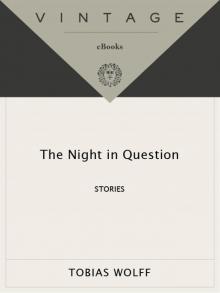 The Night in Question: Stories
The Night in Question: Stories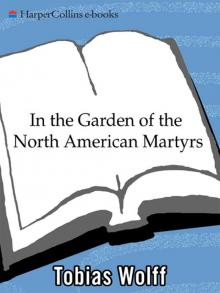 In the Garden of the North American Martyrs
In the Garden of the North American Martyrs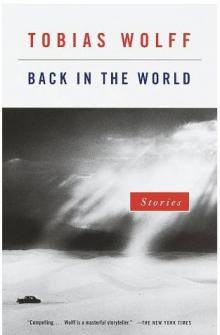 Back in the World: Stories
Back in the World: Stories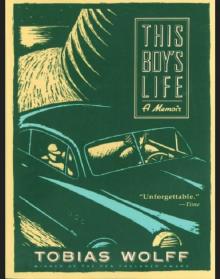 This Boy's Life
This Boy's Life Old School
Old School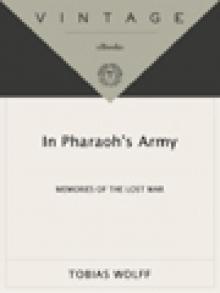 In Pharaoh's Army: Memories of the Lost War
In Pharaoh's Army: Memories of the Lost War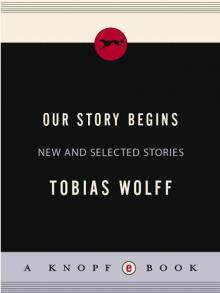 Our Story Begins: New and Selected Stories
Our Story Begins: New and Selected Stories The Barracks Thief
The Barracks Thief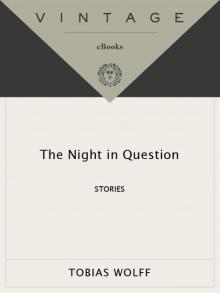 The Night In Question
The Night In Question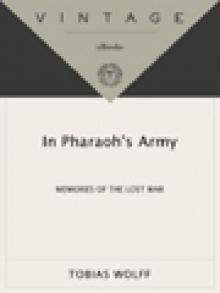 In Pharaoh's Army
In Pharaoh's Army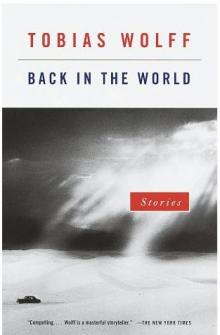 Back in the World
Back in the World